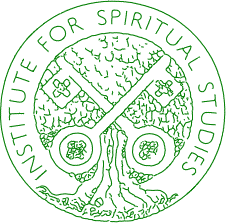

|
Seminar 5:
|
|
Can spirituality be taught to children? In the 21st century, are they interested anyway? Believing that this is one of the most important problems facing us today, we seek for answers to these and related questions. Two speakers will explore the questions in the morning sessions, while the afternoon session will give time for the audience to interact with the speakers. Catching the Transcendent: Adolescents Towards FaithSt Michael's Grammer School was founded in 1895 by the Community of the Sisters of the Church, an Anglican order of nuns with their own characteristic orthodoxy of approach to their faith. The Community's enduring traditions and foundational values, subject of course to a 21st century reinterpretation, largely guide St Michael's through a lens providing a clear sense of the School's faith, history and values base. By contrast, the School's student population reflects the diversity of contemporary multicultural Melbourne. The evident decline in faith commitment present in the broader population is reflected in the School. At least 50% of families indicate on their enrolment application that they either have no religion or they are "Christian," suggesting no real allegience to any denomination. Of the remainder, around 22% indicate they are Anglican, 22% Catholic and the remainder a mix that includes everything from Judaism to Islam to Hinduism. Yet there is no doubt that our students are clearly searching for some meaning beyond themselves. Many in the senior years articulate a desire for gradual spiritual engagement, but argue that this should not be within the confines of the established Church practice or liturgies. The School's deep commitment to a constant re-affirmation of its own faith position provides a scaffolding to support this search. It is our belief, however, that religion is caught, not necessarily taught. The only formal experience of religion that many of our students experience comes from their involvement in the worship services at the School. School communities such as St Michael's have an increasingly important implicit responsibility to nudge young people gently into the opportunities provided through worship and prayer to discover the transcendent. Simon Gipson is the Head of St Michael's Grammar School, a Board member of the Association of Independent Schools of Victoria, and an Associate of the Community of the Sisters of the Church.
Religion, Race, Death, Eschatology and Young PeopleAccording to Crotty [2003], religious culture emerges at the point of "the potential disintegration of a secular cultural world" when that world is unable to provide meaning or adequately assist in the interpretation of human experiences such as death, suffering and the problem of evil. These forms of human experience provide crisis points for the production and expresion of religious cultural interpretations and explanations as a means of constructing "ultimate order" out of what might otherwise be chaos. Few opportunities are available for young people to examine this process in religious schools, where they are generally provided with answers to their questions rather than the opportunity to explore them. In this seminar, Barbara Kameniar will outline some findings from an ethnographic study in which she observed four Year 11 religious education classes in four different schools where a unit of work on Buddhism was being taught. During these classes the concept of samsara was discussed as part of learning about a Buddhist world view. Through these discussions, broader questions of "ultimacy" were raised. Observations of the many conversations students engaged in, in which they attempted to think through their questions of ultimate concern, and particularly the question 'what happens to me when I die?' suggested that they welcomed the profound disruption alternative answers to ultimate concerns caused because it gave them the opportunity to talk about issues that were ordinarily suppressed. The resulting conversations also opened up Christian memory and encouraged students to engage with the "modulations" of Christianity's "own otherness". [Britzman, 1977] References:
Dr Barbara Kameniar is Lecturer in Education, Equity and Social Inclusion at the Melbourne Graduate School of Education, University of Melbourne.
|